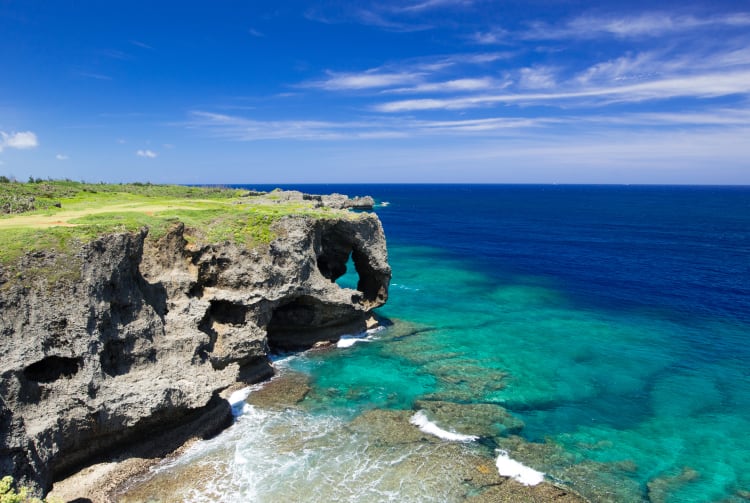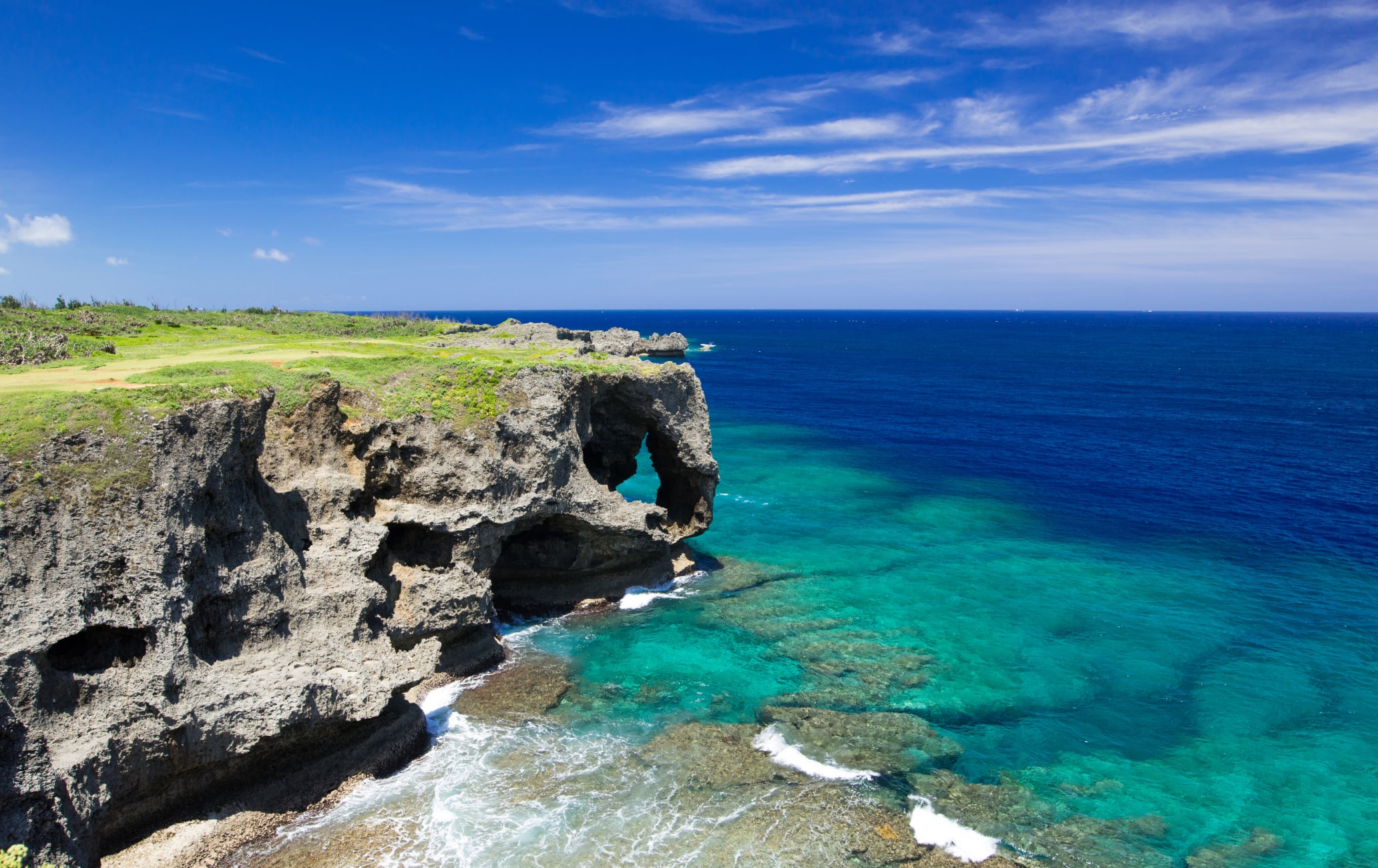A road to the unspoiled north
A beautiful area with forest-clad mountains and charming coastal villages with a special claim to fame; the world's oldest residents live here.
Don't Miss
- Stunning views along the coastal drive up Route 58
- The village of Ogimi, home to the world's oldest residents
- Hedo Point, on the northern tip of Okinawa
How to Get There
By car, it's a two-hour drive from Naha to reach the northern end of Okinawa , heading north on Route 331.
By bus, it takes a little longer, approximately 3 hours, depending on the connection. Take bus 117 from the Naha Bus Terminal to Nago, then change to bus 67 that will take you to the Hentona Bus Terminal.
The secret to a long life
The Japanese people are known for their longevity, and the people of Okinawa are the longest living of all the country's 47 prefectures.
Journey to the northern end of Okinawa, just north of Nago, west of Higashi, and south of Kunigami, where you will find the village of Ogimi. This village boasts the longest living inhabitants of all.
With a population of 3,000, there are more than ten centenarians, and many more coming close. Indeed, the village's motto declares: "At 80 years old, I am still a child. When I come to see you at 90, send me away to wait until I am 100."
What's the secret to the villagers' long life? No doubt a combination of factors, but the balmy climate and healthy diet are on top the list.
Shioya Ungami Sea Festival
The village festival, Ungami, is held each year in Shioya Bay to ensure a plentiful catch. The women of the village perform traditional dances and the men take part in haari, or dragon boat races. The date changes with the lunar calendar but is usually in September.
Land's end
The northernmost tip of the main Okinawan island is called Cape Hedo, or Hedo Point. Jutting out north from the island, it faces the Pacific Ocean to the east and the South China Sea to the west.
On a clear day, you might even catch sight of Yoron Island , the southernmost island of mainland Japan.


























































